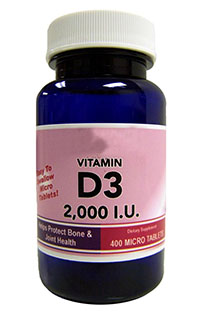 A research team has discovered a molecular pathway that contributes to triple-negative breast cancer, an often deadly and treatment resistant form of cancer that tends to strike younger women.
A research team has discovered a molecular pathway that contributes to triple-negative breast cancer, an often deadly and treatment resistant form of cancer that tends to strike younger women.
The team led by Susana Gonzalo, Ph.D., assistant professor of biochemistry and molecular biology at Saint Louis University, also identified vitamin D and some protease inhibitors as possible new therapies and discovered a set of three biomarkers that can help to identify patients who could benefit from the treatment.
In the recent breakthrough, Gonzalo’s lab identified one pathway that is activated in breast cancers with the poorest prognosis, such as those classified as triple-negative.
These cancers often strike younger women and are harder to treat than any other type of breast cancer.
Experiments performed in Gonzalo”s laboratory, in collaboration with the laboratories of Xavier Matias-Guiu and Adriana Duso (IRBLleida, Spain), showed that activation of this novel pathway not only allows tumor cells to grow unchecked, but also explains the reduced sensitivity of these types of tumors to current therapeutic strategies.
Importantly, vitamin D plays a role in turning off this pathway, providing a safe and cost-effective strategy to fight these types of tumors.
BRCA1 is a well-established tumor suppressor gene. Women who carry mutations in this gene have a high risk of developing breast and ovarian cancer. Tumors that arise often lack expression of three receptors: estrogen, progesterone and HER2 (thus, “triple-negative”), and do not respond to hormone therapy.
Loss of BRCA1 is bad news for the information contained in a cell’s genetic blueprint. It results in genomic instability characterized by unrepaired DNA breaks and chromosomal aberrations that compromise cell viability.
How BRCA1-mutated cells are able to form tumors has been a long-standing question. Investigators recently showed that loss of another DNA repair factor, 53BP1, allows proliferation and survival of BRCA1-deficient cells. In addition, decreased levels of 53BP1 were observed in triple-negative breast cancers, and correlated with resistance to drugs at the forefront of cancer treatment, such as PARP inhibitors.


